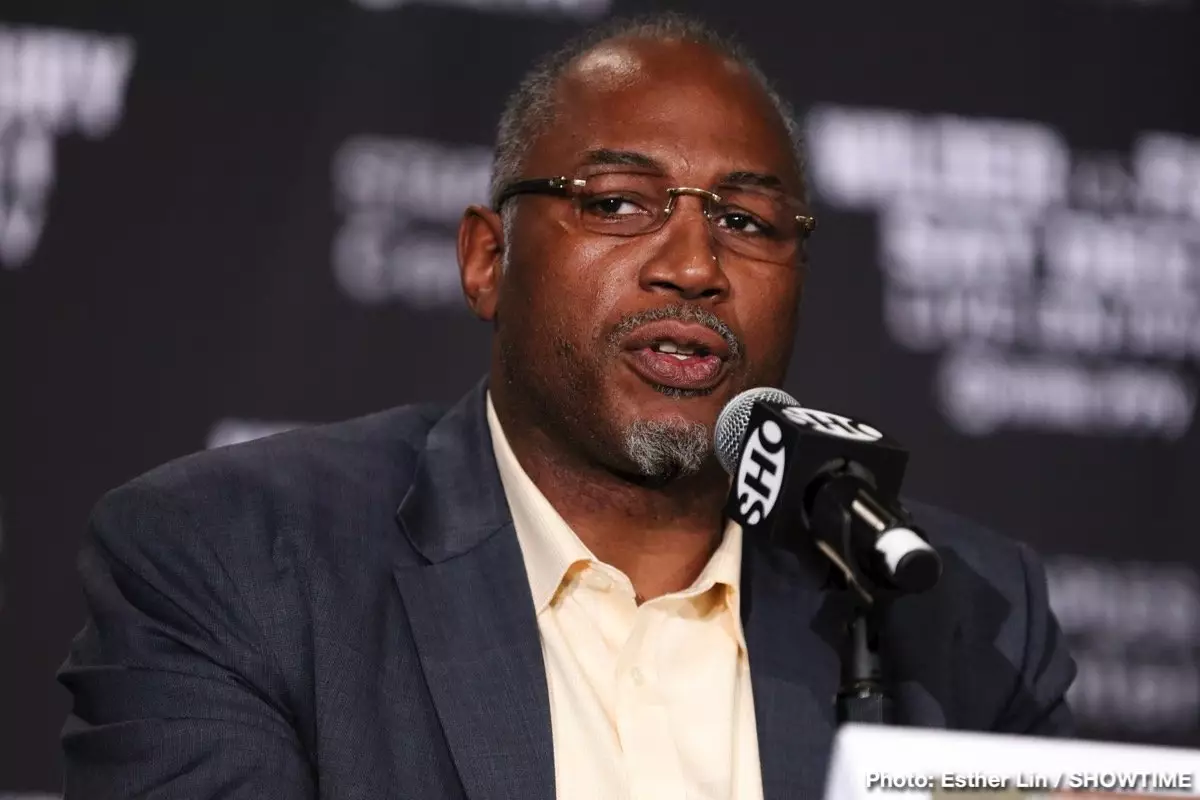The world of boxing is filled with spectacular moments that etch themselves into the history of sports, but few are as compelling as the narratives woven into the careers of heavyweight champions. Lennox Lewis, a renowned figure in the ring, became a household name not just for his brute strength and boxing prowess, but also for his remarkable resilience and the stories that shaped his career. During a recent episode of The Ring Magazine podcast, Lewis reflected on his all-time favorite punch and the significance of his revenge victories against Oliver McCall and Hasim Rahman. These details illuminate not only his boxing journey but also the profound influence of prominent figures like Nelson Mandela.
Lewis’ career was characterized by scintillating knockouts, including those against notable opponents such as Razor Ruddock and Mike Tyson. However, the emotional weight behind his rematches with McCall and Rahman reveals the deeper layers of competition and redemption. Lewis faced McCall in a puzzling bout where the fight ended unexpectedly as McCall suffered a breakdown in the ring. Lewis’ reaction to this situation encapsulates the pressure elite athletes endure, particularly when the stakes are high, and the expectations of their fans loom large. However, the fight against Rahman is perhaps the standout moment that encompasses Lewis’s journey of self-improvement and tenacity.
The 2001 encounter with Rahman in South Africa was initially a bitter pill for Lewis to swallow. An unexpected knockout defeat left him grappling with disappointment and the feeling of inadequacy. Yet, rather than allowing this setback to define him, Lewis sought inspiration from an unexpected source—Nelson Mandela. His visit with the anti-apartheid revolutionary and revered global figure proved pivotal. Mandela’s encouragement, particularly the advice to “keep that right hand up,” served as more than just tactical guidance; it resonated on a personal level, dictating Lewis’s mindset leading up to their rematch.
Lewis recalls the way Mandela instilled hope and determination in him, which molded his approach to the rematch against Rahman. The importance of mentorship and guidance in sports cannot be overstated; having a figure of Mandela’s stature affirm his capabilities provided Lewis with renewed motivation. The encounter also illustrated the broader connection between sports and societal figures. Through this relationship, Lewis found a way to elevate his game to new heights. The weight of mental fortitude, often neglected in discussions of athletic prowess, came to the forefront as Lewis rebuilt himself after the initial defeat.
Just months after their first clash, Lewis and Rahman faced off again, and this time, history turned in Lewis’s favor. In the fourth round of their rematch, Lewis secured a formidable knockout, showcasing not just his physical skill but also the psychological strength he had regained. This bout was not merely a win; it symbolized closure and retribution, an opportunity for Lewis to show the world that defeat is not the end, but often a stepping stone to greater accomplishment.
In the aftermath of that November rematch, Lewis humorously dubbed Rahman “Has-been Rahman,” a playful jab indicative of the competitive spirit that defines the sport. Yet, it also speaks to a more profound realization about the nature of competition: success is not just born from physical ability but also from the mental and emotional journey athletes undertake. Lewis stands out in the boxing realm for an astonishing record—he won every match in which he participated, a feat that underscores not only his skills but his ability to learn, adapt, and come back stronger.
This narrative illustrates why Lewis remains a vital figure in boxing history. He is not just a former champion; he embodies the notion that resilience, mentorship, and personal growth are as significant as the punches thrown in the ring. As sports enthusiasts reflect on his stories, they are reminded that the pursuit of greatness is often intertwined with facing and overcoming adversity—something of immense significance in today’s world. The bond formed between Lewis and Mandela through that singular conversation is a reminder of the inspiring impact leaders can have on individuals, regardless of the arena in which they operate.

